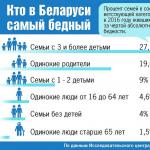
The currency of the future. Everything about Bitcoin or what Bitcoin is. Bitcoin is the electronic currency of the future right now Conditionally limited resource
Over the past few months, the popularity of virtual cryptocurrency has skyrocketed to incredible proportions. Currently, cryptocurrency (Bitcoin and others) is known all over the world. Ordinary people, companies, banks and even governments of large countries know about it or at least have heard somewhere.
In other words, cryptocurrency is especially on the rise today. That is why we decided to collect all useful and interesting information about this technology in one material. We reveal all the cards about digital money that can potentially become the future of the world economy.
What is cryptocurrency
In simple words, cryptocurrency is a monetary value in the form of lines of program code. Like the usual national currency - the US dollar or the Russian ruble, which we are all used to using, only it is completely digital.
In even simpler terms, it is digital (electronic) money. The most basic representation is a bank account. This is essentially what cryptocurrency looks like on the surface. The technology was born thanks to the capabilities of cryptography, so virtual money is absolutely safe and practically invulnerable to hacking.
The first cryptocurrency - Bitcoin
![]()
Officially, the first cryptocurrency is Bitcoin (bitcoin) - the development of the mysterious Satoshi Nakamoto.
Bitcoin was introduced in 2009 and is now the most popular and massive cryptocurrency in the world. Its value currently exceeds $ 3 thousand. Interest in bitcoin is so high that analysts predict an increase in the value of this cryptocurrency to $ 300 thousand by 2030.
And this may well come true, since Bitcoin is indeed growing faster than other types of virtual currencies (altcoins) on the market. Among the latter, for example: Litecoin, Namecoin and PPcoin. True, they cannot be compared with bitcoin - these cryptocurrencies are too weak in terms of development.
Bitcoin is open source, so its architecture is known throughout the world. Anyone can become the owner of this cryptocurrency - just download special software.
Some of the main features of Bitcoin include:
- Instant P2P transactions
- Support for international payments
- Low or zero commissions
- Hexadecimal code protection
In general, with all its advantages, Bitcoin is faster, cheaper and significantly more reliable than all modern national currencies offered by the countries of our planet. This is understood by both people who actively buy / create bitcoins and investors who invest large investments in this cryptocurrency.
The basis of cryptocurrency
![]()
At the heart of the virtual currency and, of course, bitcoin in particular, is a peer-to-peer network called the blockchain.
Blockchain is a unique online ledger that stores all the information inherent in a cryptocurrency. It works on the basis of consensus algorithms and only for adding data, is stored by each participant, and also provides secure storage of all transactions made.
And now in more detail about how the blockchain works. Each deal (transaction) receives its own block (block) in the general cryptocurrency network (electronic system). To confirm transactions, a mining system was invented, which we will discuss separately. When confirming the validity and correctness of the transaction from both sides (user and miner), it joins the previous block and forms a chain. The result is a blockchain - a system that is the key to everything in the world of cryptocurrency.
Each block of the chain is protected with a cryptographic signature, so no one can change the data after the transaction. Everything is simple, fast and confidential.
The blockchain concept could automate mundane tasks in the future. Contracts, processes, payments and other actions will be replaced by a digital code with a common database on the network.
In this case, the need for lawyers, brokers and bankers will completely disappear. The simplest interaction of things - this is the potential of the blockchain.
Benefits of cryptocurrency
![]()
One of the main features of cryptocurrency is its full independence... Neither the central bank nor the government of the country - nobody controls the virtual currencies.
All cryptocurrencies decentralized, therefore, in their case, there can be no controlling body.
Other notable advantages of virtual currency over traditional currency include:
- Complete anonymity... Bitcoin addresses are randomly generated and do not in any way relate to the real owner information.
- Speed \u200b\u200band globality... Transactions are confirmed in a few minutes. At the same time, the physical location of the user does not matter - send and receive virtual money all over the world.
- Highest level of security... Thanks to the random generation of addresses, which was mentioned above, as well as the use of private cryptographic keys.
The combination of all these advantages makes the cryptocurrency an ultra-reliable payment system capable of accepting and sending money anywhere in the world and with a minimum commission (or even zero).
Perhaps, thanks to at least the simplicity and convenience of the technology, you can try virtual money in business. No one will prohibit using cryptocurrency, and if it does not meet expectations, no one will prohibit you and refuse it.
The future of cryptocurrency
![]()
Virtual currency can revolutionize the global economy. Already, cryptocurrency has become a global phenomenon that everyone knows.
New cryptocurrencies join Bitcoin and other altcoins every day. People all over the world buy Bitcoin in the hope of success in the form of wealth and protection from the main problem of the national currency - devaluation.
In fact, the economic revolution is already in action. The global purchase of bitcoin, the transition of companies to digital contracts (smart contracts) based on blockchain technology and local support in several countries around the world - cryptocurrency is spreading at a very rapid pace.
In Russia, interest is no less keen: recently, the Russians bought all the top video cards for mining, the country's Central Bank is already creating a national cryptocurrency, and Sberbank is conducting hackathons on the blockchain.
One of the most possible prospects for cryptocurrency is the replacement of national money. Credit cards and ordinary documents have already migrated to the digital world. The transition to fully electronic money is only a matter of time.
If you answer this question from the standpoint of today's trends, the answer suggests itself unequivocally - it cannot. But Bitcoin has its own fans who will not hesitate to resent such hard-line skepticism. In addition, short answers always lead to a stupor, and you want to continue the conversation. One needs explanations, another needs proof, someone needs hope - what if there is a chance? I really want to reassure them - of course there is!
How can two such opposite answers be combined?
We call bitcoin cryptocurrency. The currency root "coin" is firmly rooted in our consciousness. But, on the other hand, most of those who make transactions with cryptocurrency and seek to master it, learning the tricks of mining, see value in bitcoin, the value that grows in price. They say so - an asset. So, in order to imagine a plausible future for a cryptocurrency like bitcoin, we must decide: is it money or assets? Of course, this opposition is partly artificial, because one of the functions of money is to serve as a means of accumulation. Money made of precious metals became real treasures, and modern money also personifies world wealth, measures accumulated assets, transactions are made with them on the stock exchange. Any currency becomes an asset when it has some properties that allow a person to protect savings.
Does the cryptocurrency have the qualifying attributes of an asset? So far, there is only one sign - it is steadily growing in price (more precisely, steadily growing). Since December 2017, the bitcoin price has been experiencing quite serious recessions and encouraging growth attempts. These fluctuations bring Bitcoin closer to "speculative" assets. But "classic" speculative assets fluctuate in price because they are associated with risk, high returns are expected for them, the companies that produce them earn significant and quick profits, expand their activities, manufacture products or provide services with high final demand. Investors evaluate all this and seek to find a “fair” price for such assets in the market.
Why is Bitcoin rising in price? Just because it grows! There is a version that its quantity, such as gold, is limited. But gold is rising in value not only because of its rarity. It also has a commodity value, not to mention the fact that it is still a "reserve asset". And bitcoin has no commodity or consumer value. Perhaps its value lies in the fact that it is a future currency, which one day it will be possible to buy everything. Therefore, just now we need to rush to stock up on tomorrow's universal means of payment.
If the version has the right to exist, let's ask ourselves another question: does bitcoin have signs of a future currency? On the one hand, the number of electronic wallets and the amounts of cryptocurrency accumulated on them is growing, more and more "cryptomats" are being installed - machines that allow you to convert accumulated bitcoins into cash. True, the cashed cryptocurrency immediately becomes traditional dollars, euros, yens. Information is periodically received that bitcoins participated in a particular transaction as a means of payment. Someone was the first to buy pizza, somewhere they managed to buy real estate. There are those who look with pride at the T-shirts hanging in their wardrobe, for which so many bitcoins were paid that today they could buy a new luxury limousine, or maybe their whole garage. But these are all exotic cases.
The reality is much more prosaic: the owners of 99% of all bitcoin wallets have, on average, only 10 or less bitcoins. At the same time, 56% keep less than 0.001 bitcoins in their wallets, which is equal in value to 8-9 dollars. The average "thickness" is almost 15 million wallets - $ 1.5 !!! And the average cost of a cryptocurrency accumulated on one of all 26.4 million wallets is approximately $ 5.5 thousand. The concentration of bitcoins is very high. The owners of only 2 wallets own bitcoins for $ 2.8 billion, and the owners of 148 thousand wallets (0.56%) - for $ 127.1 billion (87% of their total accumulated market value). These calculations are made at a cost of 1 bitcoin of approximately $ 8,700. Their market value can change, but the level of concentration is unlikely to be elastic to market fluctuations.
Conventional wealth is also highly concentrated. According to the latest data, 1% of the world's population owns almost 90% of all assets. But these are assets: stocks, bonds, precious metals, real estate, cash. If we talk about money, means of payment that are not embodied in assets, their concentration is much lower. For example, in the United States, according to surveys, among the greatest lovers of keeping cash and paying with it are Americans with an average income of $ 50-75 thousand a year (the average income in the United States is about $ 55 thousand a year). The average amount of cash they have is $ 113. Such lovers of cash in the United States - 8% of the population. Those who keep cash just in case - 26%. Their average income is 25-50 thousand dollars a year, and the average amount of daily cash in their wallet is 64 dollars. It is noteworthy that the Americans who do not have daily cash at all and pay wherever possible, mainly with credit or debit cards, - 13%. Their average income is the lowest - less than $ 25,000 a year.
These numbers suggest that the possession and use of cash in the world's largest financial economy is still fairly distributed, one might even say democratic. And this is quite understandable: the nature of money as a means of payment excludes their high concentration, which is tantamount to the withdrawal of cash from economic circulation. If the cash, as they say, is being traded, it means that cash surrogates, new means of payment should appear immediately. The law that bad money drives out good money has not been canceled. But even this is not the main thing. And the fact that the value of assets, for example, in dollars, significantly exceeds the value of cash in circulation or equivalent means of payment - the money supply. The Everest of financial assets literally hangs over a pile of cash. There is no such mass of bitcoin assets around bitcoin. Not because bitcoin is not built into the system of economic activity, and therefore is not money as such. It is still an embryo of probable future crypto money.
Another limiting factor is sharp price fluctuations. Let's imagine that the value of some currency changes sharply in price. How will its rational owner behave? If the currency becomes cheaper, he will strive to spend it as quickly as possible and turn it into property and the goods or services he needs. After he hesitates, he loses. As the value of the currency decreases, you have to pay more and more of it for a product or service. The decline in the value of the currency provokes its spending. And if the currency rises sharply, its owner will contain costs and save. If he continues to spend, he, again, will incur losses, because after holding the money, after a while he will buy more goods for the same amount of currency. The appreciation of the currency contributes to its accumulation.
Now let's look at bitcoin, which does not have pronounced signs of assets, first of all, such as the expected income based on economic activity, does not yet create bitcoin assets, which after it will begin to circulate in the blockchain space. The signs of currency in it are hardly distinguishable. However, it has characteristics that prevent it from being a currency - high concentration of ownership and sharp fluctuations in price. So how can Bitcoin's chances of gaining a full-fledged place in the list of currencies be determined?
First. There should be a demarcation of modern cryptocurrencies into potential currencies and cryptoassets, which are primarily tokens issued during the ICO. Initial offerings of crypto assets should gradually acquire the features of IPOs of securities and financial instruments. Naturally, not in form, but in content. If today, by placing tokens, issuers expect that they will grow in price like any other cryptocurrency, which, in fact, attracts investors, then in the future they will have to think about paying their investors a regular reward from income from specific activities. ICO is a form of crowdfunding and often involves doing business. That is, the token should become, in essence, a crypto-share or a crypto-bond, with all the characteristics of the classic samples of these financial instruments, first of all, income paid out under certain conditions.
Second. The cryptocurrency should gradually spread to more owners. But not only that, appropriate banking services (cryptobanking) should appear. It was the banks that destroyed the monopoly of gold as money, replacing it with credit money. Credit crypto money is what will expand the circulation of cryptocurrency as such. Without the formation of a crypto-financial infrastructure, even a virtual one, there will be no cryptocurrency. This will not allow us to overcome the purely technological limitations of bitcoins, but it will create bitcoin assets that will multiply as exponentially as financial assets have multiplied on the basis of even gold circulation. In the Middle Ages, banks did not create gold - they multiplied liabilities, and often far away from the reserves of real gold in their vaults. This caused crises and crashes, but this is how the modern financial system came into being.
Third. The cryptocurrency value should stabilize. Of course, it will change, as the exchange rates of existing currencies change, but it cannot be interest and, moreover, times. In fact, it doesn't matter how much bitcoin costs, the main thing is that its price fluctuations become close to the fluctuations of classic world currencies. The demand for bitcoin as a means of payment and investment, for example, will drive its value up. Reduced volatility - scare off speculators. Somewhere the market will find a balance.
Fourth. No matter how we call cryptocurrency private money, one or another regulatory system is indispensable. Cryptocurrency circulation must obey the rules. It is difficult to predict whether this will become a state monopoly or a self-regulating system of private money will develop. The latter option will be extremely aggressively perceived by state banks, and the first, by and large, makes no sense, because even today national currencies begin life as entries on accounts in central banks and state treasuries. And the current conventional currency is, in a sense, "crypto".
Fifth. Cryptocurrencies must be believed - not only in the dark corners of the internet, but also by the general population. It should be integrated into an objective, legal economic activity. This means that it must begin to supplant conventional means of payment. What will happen to the accumulated debts in society, to the reserves? While drawing two extremes. One is the complete destruction of the existing economic and financial system with the state at its head. The second is the transformation of private crypto money into an element of a vertical hierarchical economic system, which is locked into the state in its new format, unknown to us today. Now we have not even reached this fork yet.
If all this is at least implemented, then it is quite possible that a bit or other cryptocoin will eventually become the currency of the future.
Bitcoin is a relatively new payment unit, modestly introduced to the Internet community in 2009 by some mysterious character with the pseudonym Satoshi Nakamoto. Having posted a description of the system with the first version of the client program on the bitcoin.org website, the developer completely pulled back from the project. Then Gavin Andresen took over the coordination with a group of programmers, including Mike Hearn (formerly a specialist at Google) and the chairman of the foundation, Peter Wessensen. Literally a year later, the scientist personally presented a report to the CIA headquarters on how "Bitcoin can change the world" - the potential of the currency was so highly appreciated by criminal structures and major financial organizations.
The main essence of the system
Many specialized terms confuse the average user who is interested in the hype around Bitcoin. Electronic, virtual, decentralized, cryptocurrency - one of the many definitions is not enough to characterize a means of payment. The most accurate name "digital currency" for Bitcoin is used on its own website. In fact, one coin is a certain number (not face value!), Which is stored in the database. It is easier to quickly grasp the principles of the system functioning for users who are well versed in P2P IT technologies, programming and cryptography.
The Bitcoin system works precisely at the expense of peer-to-peer network participants who create new base blocks on their PCs using cryptographic methods. Solving complex mathematical problems, where a computer is engaged in the selection of code digits, you can receive a certain amount of BTC as a reward. The block reward for this period is 25 BTC - the number has halved since November 28, 2012. A participant in the system and, therefore, a Bitcoin producer can be any user who has:
Bitcoin software on a complete mining PC. Downloading large amounts of data takes a lot of time and traffic.
Relevant hardware that needs to be regularly updated given the growing complexity of mining: multiple graphics cards or an ASIC (optional) and a powerful power supply.
A cheap, or better, a free source of electricity.
Numerous online guides from experienced members of the system allow you to learn more about bitcoin generation. True, new "miners" should not be greatly encouraged: the short-term profitability of such an occupation is zero. The amount of BTC received practically does not justify the cost of iron and energy consumption. The technical idea of \u200b\u200bBitcoin was initially far from financial pyramids, therefore, it does not guarantee either easy money for the participant, or quick increase in funds for investors. But the fame of a brand with long-term potential is used by intermediaries using speculative methods to earn money, from there and commissions for transactions, payment of electronic benefits, rates on the course.
What is the reason for the unrealistically high Bitcoin rate?
Of course, not only the efforts of the tabloid press inflated the popularity of the new means of payment, which is reasonably called "electronic" or "synthetic gold". There are definitely some similarities:
The main feature is the decentralization of Bitcoin, that is, the absence of a single emission (generating virtual coins) center and controlling body. The system as a whole resembles the extraction of valuable minerals.
The second common property of Bitcoin with a precious metal is the depletion of the resource, its limited quantity. The creators of the currency have programmed a total maximum amount of 21 million currency units, and it is not possible to increase this figure.
Another common characteristic of "synthetics" and natural gold is the difficulty of mining (extraction). Mining bitcoins, similar to gold mines, becomes more complicated over time: to decrypt each subsequent block of MTC, you need to increase the computing power. Every 4 years, the number of coins in a block is halved. Over the short history of Bitcoin, the complexity of mining has increased 50 million times. At the same time, the price of each coin also grows, which does not exclude the possibility of deflation with division of one to the eighth decimal place.
Global Bitcoin Outlook
In the last two months of last year alone, the rate of one coin has grown from hundreds of dollars to $ 1200 on some exchanges. True, in December, the central bank of China doubled the quotes on the BTC China exchange by completely banning the exchange of cryptocurrencies for Chinese yuan. For Bitcoin, this is far from the first fall. Moreover, in 2011, an account hack with data theft of 60,000 users led to a complete halt of the famous Japanese exchange Mt Gox. But this disaster did not become the collapse of the digital currency. Despite the obvious dependence on demand, experts predict the exchange rate of $ 10,000 at the beginning of next year. Analysts of the British investment company Wedbush Securities announced the possible price of one BTC coin up to $ 98,000 in the near future, presenting the cryptocurrency as a "powerful alternative to banking networks."
The outlook did not seem so bright in 2010, when BTC was valued at $ 0.05. A year earlier, IT specialist James Howells from the UK threw a hard drive into a landfill containing 7,500 virtual Bitcoin coins with a current price of about $ 8 million. To try to recover the fortune, the Briton would have to shovel many meters of rubbish in a Newport landfill with an area of \u200b\u200ba decent stadium ...
Another generous waste of precious bitcoins was an Internet user from Florida under the nickname Laszlo, who gave ten thousand coins for two pizzas in May 2010. In fact, his story was the first transaction in the history of Bitcoin. Three years later, for this amount, Lazlo could acquire a confectionery factory.
Dozens of similar cases in the short history of Bitcoin are fueling the interest of internet users around the world. Potential investors are held back only by the historical experience of numerous victims of financial pyramids. There are thousands of real participants, including in Russia, whose names are now unrealistic to find out. It is only known that the largest stake ($ 11 million) on Bitcoin was made by the Winkelvoss brothers, who at one time threw the idea to rival Mark Zuckenberg to create Facebook.
The control of the largest wallet (144,000 BTC), “confiscated” from the illegal Silk Road website, was taken over by the FBI. The online site was closed for mediation in the sale of drugs, and its owner Ross Ulbricht lost more than $ 100 million.
At the end of 2013, there were approximately 12 million BTC in circulation - just over half of the total Bitcoin gold reserves included in the mining program by the developers.
Risks of use and legal status of cryptocurrencies in the global market
Soaring quotes, on the one hand, are perceived by specialists as the formation of the value of the real equivalent, and on the other, as an artificially inflated financial bubble. However, the disagreements between the opinions of experts do not prevent the development of the brand that led to the formation of forks: Litecoin (LTC), Namecoin (NVC), Novacoin (NVC), Terracoin (TRC), etc. Alternative cryptocurrencies, along with parent Bitcoin, are actively used in the field speculation by users around the world and on Russian stock exchanges.
In general, the gambling interest of Russians in Bitcoin is quite predictable. Vague legal provisions regarding the circulation of virtual means of payment in Russia allow the use of bitcoins in e-commerce. On sites such as BTC-E, the volume of unorganized trading with high commission rates breaks all world records. The latest technologies are used to manipulate participants, so there is a high risk of an increase in cybercrimes: hacking wallets, hacker attacks, closing Internet platforms.
The legal status of the virtual currency is undefined in most countries, and only Germany has officially recognized BTC as a private money option. The topic of legislative regulation is being actively discussed in the US Congress, as well as by government officials in several countries of northern Europe. But legalization of Bitcoin will deprive it of its main attractiveness and turnover income. Both the criminal accounts of traders in illegal goods and the privacy of the data of all system participants will be targeted. It is clear that in Russia, for example, the benefit from the use of expensive cyber currency will postpone the solution of a similar problem for very indefinite periods.
However, despite all the refuting facts, Bitcoin may well turn out to be one of the most spectacular financial pyramids, which will one day collapse without the help of government agencies. But even if the system changes drastically, cryptocurrencies, compared to paper money in the modern economic space, have a much better chance of survival.
In the second half of 2017, Bitcoin (BTC) skyrocketed to unprecedented heights and became the most profitable financial instrument for many large investors. In just a few months, the value of this cryptocurrency has grown from $ 2,750 to $ 19,000. BTC is still growing this year, and according to experts, the price increase will still be observed for a long time.
Will cryptocurrency become an alternative to securities?
The emergence of digital currency promises in the future and their financial markets. According to most experts, Bitcoin will continue to grow in price for a long time, and therefore the owners of crypto coins will continue to receive tangible benefits. It is difficult to say how Bitcoin will become as a result - a reliable tool and an excellent alternative to classic money or a soap bubble like "MMM" on a global scale.
According to Roman Tkachuk, an analyst at Alpari Group: “Bitcoin is a very interesting financial instrument, but at the same time it is also highly risky. At the beginning of 2018, the crypto coin has risen in price several times. In general, over 5 years, the cost has grown 60 times, which allowed those who invested in it at the initial stages to get rich. "
“In fact, now bitcoin is positioned as an investment tool,” - comments by FOREX CLUB analyst Andrey Shevchin... Only one dynamic of cryptocurrency is a real challenge to almost all of today's trading instruments, regardless of national currencies. Indeed, back in 2011, for 1 one Bitcoin coin they gave 11-13 dollars, and today its value varies in the range of 13,000 dollars.

“Bitcoin is a modern alternative to gold and to a certain extent it is the main competitor to the dollar and the financial system in the classical sense. Like precious metals, digital coins have no fair value, and therefore everything is determined by the ratio of supply and demand ”, - says the expert of Alpari Group Tkachuk.
“Gaining popularity as a payment instrument, Bitcoin is actively growing against the dollar. Therefore, the more transactions using a given digital currency, the higher its cost. Additionally, the rise in prices attracts not only investors, but also speculators ", - the analyst emphasizes.
Also, Bitcoin stands out with such advantages as:
- The limited number of Bitcoin coins.
- Special blockchain technology.
- Anonymity.
- The minimum emission.
Thanks to the above qualities, the attractiveness of the crypto coin is higher than ever.
Will Bitcoin continue to grow?
“At the moment, cryptocurrency is experiencing its peak of popularity. Consequently, demand now exceeds supply. Given this factor, the digital currency will gradually grow in value ", - notes financial expert Tkachuk.
On the other hand, the higher the value of the currency rises, the higher the risks of deflation of the so-called bubble increase. However, the main risk for Bitcoin is the tightening of regulation by the Central Banks of various countries.
According to Andrey Shevchin, chief analyst of FOREX CLUB, Bitcoin looks overvalued at the moment. Based on this, the correction of its value may begin at any time.
On the other hand, a rather complicated geopolitical situation is now taking shape in the world. Against this background, the blockchain is rapidly gaining momentum, investors are buying coins, an increasing number of people around the world are showing interest in bitcoin. Therefore, the growth of cryptocurrency will continue for some time. .
Bitcoin: the currency of the future or a big bubble?
Many financial experts and analysts disagree on the crypto coin. So, some believe that bitcoin is a promising currency that will replace standard money in the near future.

Blockchain technology is constantly evolving, attracting more and more people around the world every day. Of course, there are fundamental and technological risks, especially when bringing BTC to a new level of exploitation. Additionally, the value of bitcoin is speculatively overpriced, however, as long as it is in high demand, its price will rise steadily .
Other experts and analysts consider Bitcoin a big "soap bubble", like the American stock market itself. That is, it can swell for a long time, however, in the end everything will burst exactly, it's only a matter of time.
Financial analysts believe that BTC is not yet capable of fully performing the functions that are inherent in national currencies. This is due to the fact that bitcoin has an unstable exchange rate. Accordingly, no one wants to use a cryptocurrency for settlements, the value of which can rise or fall by 15-20% in just one day.
Additionally, central banks of different countries do not have a clear position in relation to virtual currencies. However, today one can observe a tendency to intensify the fight against the exchange of crypto coins for ordinary money and vice versa. It is likely that in the future, many states will impose sanctions on online retailers that accept cryptocurrencies, which may actually lead to a drop in demand for digital coins.
Also, do not forget about hacker attacks. After all, despite the fact that it is constantly being improved, nevertheless it is quite possible to hack them.
Of course, if a number of different circumstances are favorable, then it is likely that Bitcoin will be able to replace the usual coins and paper banknotes. However, the prospect of cryptocurrencies is still dubious, since, on the one hand, it opens up wide financial opportunities, and, on the other hand, creates high risks for people.
It is possible that somewhere in the Internet underground, the main economic revolution in history is now taking place, due to a fundamentally new form of money. No, not triangular.
When the media buzz about Bitcoin at the end of last year, Norwegian student Christopher Koch suddenly remembered that in 2010 he studied cryptocurrency for his thesis and, much to his girlfriend's annoyance, spent $ 26 to buy bitcoins. With great difficulty digging up and decrypting his long-forgotten wallet, Christopher, to his amazement, found 5,000 bitcoins there, which are now worth more than $ 4 million! Has the Norwegian girl stopped grumbling? We think so. (Although, if it were in Israel, she would start wailing: "Why couldn't you buy bitcoins for at least $ 123, idiot ?! Why am I suffering so much ?!")
The beauty of the bitcoin situation today is that no one, not even the smartest people in the world, can predict what will happen next. A revolution that will change the whole world (so many believe)? Or will Bitcoin quietly deflate and remain a curiosity?
How it works
Bitcoin is called an experimental digital currency. To be more precise, bitcoin is a technology, a currency and a payment system. Its principles were published in 2008 under the pseudonym Satoshi Nakamoto. Who is behind him is still unknown, which is very symbolic. One of the revolutionary aspects of Bitcoin is the complete anonymity of all users. Over the next two years, these principles were implemented as open source software by a diverse group of volunteer developers from around the world. The system is open to everyone: anyone can connect to it at any time or study its code without asking anyone for permission.
The essence of bitcoin is very simple: it is digital cash. With all the pros and cons of cash. You keep digital coins on your computer or smartphone. The program is called a bitcoin wallet. You can quickly transfer any amount of money to anyone, anywhere in the world, at any time of the day or night, without leaving your computer or smartphone. It's as easy as sending someone an email. Like cash payments, Bitcoin payments are anonymous and are not linked to any information about the user - this is the difference from the usual credit card payments or online banking. As with regular cash payments, payments cannot be canceled: as soon as you have parted with a coin, it is no longer yours. And just like the regular cash in your wallet, this currency can be stolen by digital pickpockets if handled carelessly and not taken with reasonable precautions.
All wallet programs on computers of users around the world are interconnected in a huge payment network. Together, and in strict accordance with pre-known rules, these programs provide the transfer of digital coins from user to user without any control center or administrator. At the same time, counterfeiting bitcoins or trying to pay with one coin twice will not work.
Bitcoins are not tied to the value of any existing currencies or real assets like precious metals and real estate. Their price is determined solely by supply and demand on online exchanges or in direct deals between buyer and seller.
Bitcoins are not issued by any central bank or any other issuer. Instead, they come into circulation in the process of a kind of lottery, where each participant in the system has a small chance to receive a certain amount of bitcoins on average once every ten minutes. Moreover, this chance depends on both the total number of network participants and the amount of computing resources provided by a given user. Once upon a time, four years ago, bitcoiners could generate hundreds of coins a day on the most ordinary laptop. Nowadays, only powerful specialized servers united in huge computing pools can mine coins.
Bitcoin world news
A student who unfolds a poster "Mom, come money!" at a US Collegiate League game, received $ 20,000 in donations. The fact is that, in addition to this call, a bitcoin sign and a QR code of the student's bitcoin wallet were drawn on the poster. The poster fell under the lenses of TV cameras, and compassionate bitcoiners, having read the QR code directly from the screen, immediately began to send him digital coins. The first payments began to arrive literally seconds after the poster appeared on the screen, and in just a day the student received bitcoin donations for as much as $ 20,000.
The Bitcoin theft of the century happened on December 7: more than $ 100 million worth of bitcoins were stolen from clients of the illegal online marketplace Sheep Marketplace. This hidden site sold a wide variety of drugs, and its popularity has skyrocketed since the closure of online drug trafficking pioneer Silk Road.
Bitcoin is firmly established in American pop culture. It became obvious to everyone when, in the next issue of the popular animated series The Simpsons, the clown businessman Krusty began to complain that he “lost all his money playing on the bitcoin market”.
A hard drive with 7,500 bitcoins lies in a junkyard in the English city of Newport. These coins were mined back in 2009 by IT specialist James Howell, and their current value is about $ 6 million. The hard drive with digital coins was thrown away by James in the course of routine clearing of "digital junk", and it was only a month later that he realized how bad he was. The inconsolable James did not bother to make a backup copy of his wallet, so now he is assembling a team of "treasure hunters" armed with an excavator to dig a huge dump and retrieve the lost digital treasures from under a two-meter layer of garbage.
Will Bitcoin Change the World?
At first glance, bitcoin is just another electronic payment system such as PayPal or WebMoney, and even operates with an obscure virtual currency, the cost of which is constantly jumping. But his fans believe that Bitcoin will lead to a complete rethinking of all international finance, break down economic barriers between countries and free money from state control. They argue that bitcoin is a revolution that will change the lives of each of us, as the Internet has previously done.
To say that Bitcoin is just digital money is like saying, "The Internet is such a fancy phone." This is true at some level, because the Internet is also meant to transmit information.
So, bitcoin has three aspects: technology, currency and payment network. Let's dwell on each of these aspects in more detail.
Bitcoin as currency
The world's central banks can print currencies in an unlimited amount, guided by some of their own considerations or political conjuncture. And all the currencies in the world are gradually depreciating - some quickly, some slowly.
The number of bitcoins put into circulation is strictly fixed by the rules and is halved every four years. A total of 21 million will be produced by 2140. There are few coins, the number of users is growing, so the cost of one bitcoin is also growing, which leads to a situation that is paradoxical for the modern world: bitcoin as a currency, in principle, is not subject to inflation, but deflation. Despite short-term fluctuations in the exchange rate, in the long term, this currency, in theory, should not only maintain, but also increase its purchasing power. Even after the number of users of the system stops growing, the value of the coin will slowly increase due to the growth of the bitcoin economy. Deflation could be a problem, but fortunately, bitcoin can be divided almost unlimitedly, and its thousandth or millionth part is no more difficult to pay off than a whole coin.
Bitcoin as a payment network
No less revolutionary potential lies in the organization of the bitcoin payment network. It does not depend on banks and intermediaries. It ignores state borders and lies outside the control of governments. No one can forbid you to send bitcoins to anyone - even a needy black man in Africa, even a prostitute, even a politician.
At the same time, it is absolutely indifferent for the bitcoin network whether we are talking about transferring millions of dollars to the other end of the world or about a small payment for a drunk cup of coffee. Paying anywhere and for any amount will cost only a few cents if you're in a hurry, or completely free if you're willing to wait a bit. Banking commissions of 0.5-2% of the payment amount or $ 25-50 for an international transfer look like a sheer robbery against this background.
The bitcoin payment network is open to absolutely everyone. Including for those who for some reason do not have a bank account. And there are actually quite a few of them: out of 7.5 billion of the world's population, only 1 billion are covered by banking services. However, two billion of those who currently do not have access to banks still have an Internet connection - mostly through mobile networks.
And now, connecting to the international payment network for these billions is just a matter of downloading and installing a bitcoin client. In much of the developing world, people have never seen a wired telephone, but everyone has a cell phone. These billions of people will begin to participate in international trade and financial flows without ever knowing what a bank is.
Bitcoin as a technology
Finally, technology. The decentralized computing network approves transactions without the need for an administrator, control center, or supreme arbiter. This is already a revolution. But decentralized digital currency is just the first application of this technology. With the same success it is possible to build on it a decentralized system of accounting and transfer of ownership rights to any movable and immovable property, or, for example, registration and notarization of documents without any state registration bureaus and notaries. And even a system of one hundred percent fair secret ballot. If the Internet is primarily a protocol for the exchange of information, bitcoin is a protocol for the exchange of anything.
Perhaps the technological aspect of bitcoin is the most interesting of the three. After all, even if something happens to the bitcoin currency or the bitcoin network, this does not mean the end of bitcoin. Bitcoin technology is known to everyone - anyone can take open source, fix the flaws and release a new version of it. Digital currencies will not disappear anywhere: the genie is released from the bottle and it will not be possible to drive it back. What we see now can be compared to the complex, black and white, ugly and nerdy interface of the Internet of the late 80s. The potential of all possible applications of these technologies is far from being revealed, the Amazons, Google and Facebook of the Bitcoin world have not yet appeared.
Bitcoin in numbers
120 exaflops is the total power of Bitcoin's distributed network, making it the most powerful computing network in human history. And the aggregate computing power of the world's top 500 supercomputers is about a thousand times smaller than the Bitcoin network.
42% know bitcoin is a digital currency, according to a Bloomberg poll in November 2013. At the same time, 6% of respondents consider Bitcoin to be a game for the Xbox, and 7% - a new application for the iPhone. The rest honestly admitted that they had no idea what they were being asked about.
$ 6,000,000,000 - the turnover of the illegal online market Silk Road, closed by the FBI in October 2013. Drugs, fake documents and weapons on this site were sold exclusively for bitcoin. The operator of the site, anarchist Ross Ulbricht, pocketed over $ 80 million in commissions over two years of work.
21,000,000 is the maximum number of digital coins that can ever be issued. Calculations show that this limit can only be reached by 2140.
4847% is the annual return of Exante's Bitcoin Fund, which is ranked # 1 by Bloomberg. Traditional investment funds, which took second and third places, showed annual returns of 34% and 25%.
73% - this is how much the bitcoin price lost from its peak of $ 266 in just a week of trading in April 2013. Experts called it a crash that bitcoin can't recover from. However, the price of the coin set a new price record within six months.
280,000 - so many new bitcoin users are registered monthly on just one of the blockchain.info online wallets. The growth rates have increased significantly since the beginning of this year, when the service grew by only 30-40 thousand new users per month.
$ 312,000 - this will be the minimum price of one bitcoin if the cryptocurrency can completely replace gold as a saving instrument. The value of all the world's gold reserves is estimated at $ 6.5 trillion.
5 cents was given for one digital coin in July 2010 on the Mt.Gox exchange.
927 people on Earth own half of all bitcoins in existence, businessinsider.com estimates.
Why Bitcoin can fail
However, bitcoin skeptics also have many arguments. The main one is the absence of any own, or fundamental, value of the coin. Bitcoin is just a handful of bytes. How could he be worth anything at all? Unlike gold, which is sometimes compared to, it is absolutely useless for anything other than being money.
A little about GirlsGoneBitcoin
Anonymous digital cash? What you need for an online striptease! The girlsGoneBitcoin group on Reddit became the pioneer of this type of business, where you can find more than 4.5 thousand visitors. The “strip for bitcoins” business model has become so successful and profitable that now there are dozens of copycat sites all over the Internet - for all tastes.
Someone thinks that bitcoin is a new type of financial pyramid. After all, those who learned about bitcoins earlier than others were able to buy them cheaper. Now they make a profit at the expense of newcomers who have to overpay. Like any pyramid, bitcoin faces a sad end, skeptics predict. As soon as the number of people willing to invest in it dries up, the bitcoin rate will drop to zero.
The volatility of the digital currency does not allow it to be taken seriously, skeptics complain. Indeed, today bitcoin costs $ 700, tomorrow - 800, the day after tomorrow - 500. You will get tired of outweighing the price tags every hour.
And security concerns can alienate the broad masses. Indeed, it is not easy now to preserve and protect your digital treasures, especially for ordinary people. Digital coins are stolen by hackers, computers with bitcoin wallets are broken and lost. It is impossible to recover lost coins - this is digital cash.
Bitcoin's deflationary nature can also be a source of trouble. Since its value is constantly growing, everyone will only save, not spend. As a result, bitcoin prices for everything will constantly decline, and the bitcoin economy will fall into a deadly deflationary spiral.
Finally, one of the most serious arguments against the impending triumph of digital currency is the resistance of government agencies. In the face of strong competition from non-inflationary currencies, states will not be able to freely print their currencies, devalue and manipulate money markets. Lack of profit from the printing press, coupled with the complication of tax collection and levy on transactions in anonymous cryptocurrency, will make states cringe, lay off millions of civil servants and curtail many economic and social programs. Bitcoin skeptics conclude from this perspective that states will never allow serious competition for their monopoly of money and Bitcoin will soon be subjected to massive persecution and bans.
Bitcoins are accepted here
The first purchase of real goods for bitcoins recorded in the annals of history took place in May 2010, when the American Laszlo Hanech paid another bitcoiner 10,000 coins for two pizzas delivered to his home. "The pizzas were just awesome!" - recalls Laszlo. He says he does not regret his purchase at all, although the 10,000 bitcoins paid for a couple of pizzas are now worth several million dollars. Perhaps these were the most expensive pizzas in human history.
A couple of years ago, many people ridiculed Bitcoin's claims to be called a currency on the basis that, in fact, little could be bought for it. Well, perhaps some early enthusiasts accepted it as payment for all sorts of exotic things like hand-made soap or socks made of llama wool.
Today many online stores are happy to accept digital currency. For example, on the site bitcoinstore.com you can buy more than 20,000 items of various electronics, and it is much cheaper than on Amazon. American distributors have begun selling Lamborghini and Tesla cars for bitcoins, and Richard Branson recently announced that bitcoins can now buy a ticket to travel into space on his Virgin Galactic ships.
Bars and pizzerias (hello Laszlo!) Are also not far behind. In December, it became possible to drink beer for bitcoins in Russia: the Killfish bar chain officially announced that it is now possible to pay with digital currency in all 66 bars of the network.
The dark side of bitcoin
And, of course, the anonymity of bitcoin and the impossibility of rolling back payments makes it the only reliable option for online purchases of illegal goods and services. With the help of bitcoins, online casinos bypass the US ban on online gambling, and they can buy drugs banned in the US.
But the real hit of illegal online sales was illegal substances. The pioneer of this business is the hidden Silk Road site, created in early 2011 by the American anarchist practitioner Ross Ulbricht, who operated under the pseudonym Dread Pirate Roberts. This site, which was called the "Amazon of the drug trade," presented a wide range of drugs and psychotropic substances - they could be bought for bitcoins and then received by mail. Customers ranked suppliers and wrote reviews of the goods received. Shopping on this site was not much different from the usual online retail and was so superior to the experience of buying drugs in the doorway that connoisseurs massively switched to using Silk Road.
Interestingly, Silk Road's activities reduced the risks of both buyers and manufacturers. This business model knocked out the economic base from under the criminal gangs that feed on the transportation and distribution of drugs. It would seem that professional fighters against drugs should have only rejoiced at this, but that was not the case. For the FBI and the Drug Enforcement Agency, Dread Pirate Roberts became enemy number one, and the best forces were thrown into his search. In October last year, those efforts were crowned with success, the operator of the site was arrested at the San Francisco City Library, and the site was shut down. However, the achievements of law enforcement officers turned out to be a Pyrrhic victory: dozens of others came to replace Silk Road. So, nothing threatens the bright future of illegal online trading.
The altcoin problem
One of the arguments against bitcoin is the clone problem. Skeptics argue that since the system's code is open source, thousands of clones (also called altcoins) will appear and the original bitcoin will be depreciated. They compare Bitcoin to services like Napster or MySpace, which were pioneers in their category, but then ceded the palm to more technically advanced competitors. Attempts to create a "best bitcoin" are not stopping. More than 150 altcoins have already been created. Most of them are nothing more than hobby projects with scanty capitalization. Here are some of the more interesting examples.
Primecoin is the first altcoin to do useful calculations instead of stupid transaction hashing. Well, how useful ... It looks for new big prime numbers, which is theoretically very useful for cryptography and some other branches of mathematics. Cancer cures might not be expected, alas.
Litecoin is the oldest and "deserved" altcoin. It offers a number of technological improvements, such as faster transaction confirmations and a different crypto hashing algorithm.
Peercoin is perhaps one of the most innovative clones out there. It makes some really interesting changes to the transaction confirmation scheme that can dramatically reduce the energy consumption of the network. If energy consumption ever becomes a major issue, then perhaps the bitcoin network should adopt these improvements.
Dogecoin is a mock altcoin inspired by pictures of dogs. The users were so touched that for the sake of joke they bought themselves a little bit, for a couple of hours, throwing the course of the dog a thousand times.
What's next?
Can Bitcoin overcome the resistance of governments, central banks and the powerful financial lobby, as well as the inherent conservatism of people in everything when it comes to money? Will this technology be able to realize its revolutionary potential and change our world?
Experts are breaking lances on Bitcoin with opinions ranging from "completely useless nonsense" to "saving all of humanity." Legislators and regulators are trying to figure out what kind of attack fell on their heads and whether it is possible to somehow limit the unusual financial freedom that this very bitcoin gives ordinary people. Central banks are issuing formidable statements and warnings about the risks of digital currency investments. The cost of digital coins on the exchanges over and over again flies into the stratosphere, then again collapses on the sinful earth. Investors, following the stock market fluctuations, either bless the digital currency, or curse it.
But whatever happens around, bitcoin itself is absolutely indifferent. He is not touched by passions, opinions, statements, laws, regulations, price fluctuations and any other fuss. At any time of the day or night, in any country and on any computer, Bitcoin simply does what it was intended to do - reliably transfers ownership of digital coins in accordance with all known and unchanging rules. The experiment continues.
















